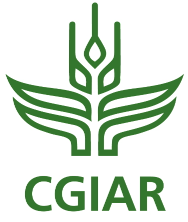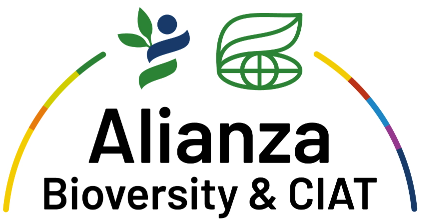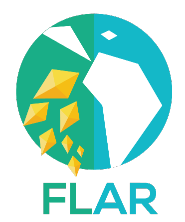

Speakers
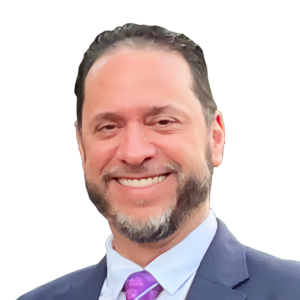
Agroindustrial Engineer who has the ability to analyze the field in all its perspective, in order to take advantage of the primary production and natural resources of the agricultural sector, to apply all sources of food and non-food industry, as well as the infrastructure for such activities. To develop competitive and innovative solutions for customers, in order to transform the processing of rice, grain and seed milling into an easy and profitable experience.
CEO Commercial and Technological Process of SUPERBRIX SA.
Active participation in events related to cereal milling, rice processing and conditioning and storage of cereals, grains and seeds. I am responsible for the company’s commercial relations and strategic operations. I participate in the development and innovation of new products by leading our own R&D team or in conjunction with our strategic allies. I manage the personal and commercial relationships with our VIP clients and companies in different areas or sectors of the market.
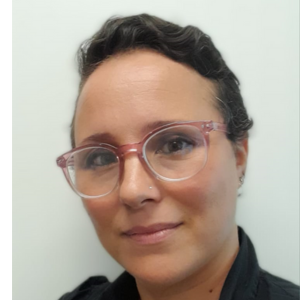
Marion is an agricultural engineer, graduated from the Ecole Supérieure d’Agriculture d’Angers (France). She holds a Master of Science in Agricultural Development from Montpellier Supagro (France) and an MBA from the University of Poitiers (France). Between 1998 and 2004, he worked with public and non-governmental organizations in Madagascar, Ethiopia, Russia and the Democratic Republic of Congo on issues such as agricultural innovation, food security and value chains. She joined the Inter-American Development Bank in 2005, working in the offices of Haiti, Belize, Nicaragua and Panama, and also assuming responsibilities in Honduras, Guatemala and Costa Rica. Since 2019, she is coordinator of the IDB’s Environment, Rural Development and Disaster Risk Management Division for Central America, Mexico, Dominican Republic and Haiti. Her areas of expertise are agricultural innovation with participatory approaches; family farming; agroecological transition; and in general, the social and environmental dimensions of agricultural sustainability.
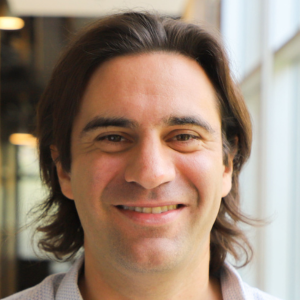
Dr. Patricio Grassini is Sunkist Distinguished Professor of Agronomy at the University of Nebraska-Lincoln (UNL). Patricio holds a degree in Agricultural Engineering from the University of Buenos Aires (Argentina) and a PhD in Agronomy from UNL. He is the author of more than 100 articles published in international peer-reviewed journals, including top-tier journals such as Nature Communications, Nature Sustainability, Nature Food and PNAS. He has been included within the top 1% of the Most Cited Researchers in the discipline in the world for the last four years (2019-2022) according to the Web of Science. His research interests focus on yield potential, productivity gaps and resource use efficiency in agricultural systems.
Patricio’s applied research covers a wide range of cropping systems, including rainfed and irrigated cereal crops in South America, the U.S. corn belt and Asia, and oil palm in Southeast Asia. Major ongoing projects include (i) the Global Yield Gap Atlas (www.yieldgap.org), which provides estimates of the differences between actual and potential yields of major cropping systems, (ii) an initiative to improve productivity and reduce the environmental footprint associated with oil palm cultivation by smallholder farmers in Southeast Asia, (iii) a project to study the interactions between cropland and urban areas funded by the US National Science Foundation, and (iv) a global initiative to study the interactions between cropland and urban areas funded by the US National Science Foundation, and (iv) a global initiative to assess potassium limitation in cropping systems supported by the International Fertilizer Association. Dr. Grassini has received the Sunkist Chair in Agronomy, a Fulbright Scholarship and three other fellowships and seven awards, including the Agronomy Society of America (ASA) Early Career Award and the W.L. Nelson Award for Diagnosing Yield-Limiting Factors. Patricio is also a member of the Editorial Advisory Board of Field Crops Research and Global Food Security magazines and Associate Editor of Crop & Environment magazine. Patricio was the 2019 term Chair of the Crop Science Society of America’s Crop Ecology Division.
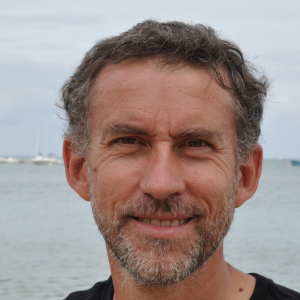
Co-founder and CEO of DELTAGee, a software and services company focused on the optimization of breeding processes and decision support. One of DELTAGee’s objectives is to contribute to solving some of the challenges in agriculture through relevant, fast and efficient cultivar development processes.
Michel’s relationship with plant breeding dates back to his undergraduate degree at AgroParisTech in Paris (France). He was later introduced to molecular breeding during his PhD at North Carolina State University (USA), which led him to spend most of his career at the interface between breeding and technologies, constantly focusing on breeding efficiency.
Michel has worked with many crops, from barely domesticated to widespread, from field to active greenhouse, from commodities to vertically integrated. His experience also spans the public and private sectors, from large multinational groups to small local organizations, all over the world.
He is very interested in the transfer of skills and knowledge, of which DELTAGee is a materialization.
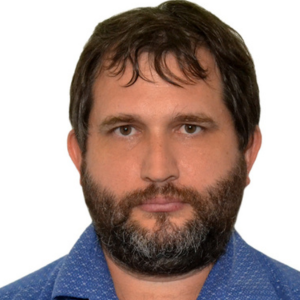
Damien has worked at IRRI for 15 years, where he currently heads the Breeding Innovations and Informatics unit at the International Rice Research Institute. He is also the head of the Native Traits Discovery and Deployment team, and administers the IRRI trait development pipeline. He has worked extensively in designing accurate marker systems for rice, and deploying high-value genes for disease and stress tolerance into elite material.

Adam Famoso is an associate professor at the Louisiana State University AgCenter and director of the H. Rouse Caffey Rice Research Station in Crowley, Louisiana. He joined LSU in 2015 and his research focuses on applied breeding and rice variety development. Working with an interdisciplinary team, a key breeding program research focus is to explore, optimize and implement new breeding strategies within the logistical and budgetary context of an applied breeding program. Before moving to LSU, he worked at DuPont Pioneer from 2010 to 2015 focusing on hybrid rice product development. He completed his PhD in 2010 in Plant Breeding and Genetics from Cornell University and his BS in Horticulture from Pennsylvania State University.
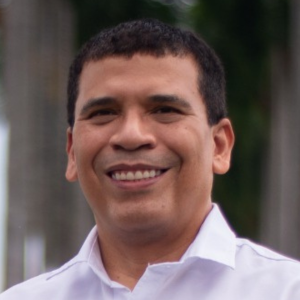
Agricultural Engineer, Ph.D. in Plant Breeding and Genetics. Executive Director of the Latin American Fund for Irrigated Rice (FLAR). At FLAR, Eduardo is responsible for the strategic and administrative direction of the Fund, which brings together more than 30 rice organizations from 17 countries in Latin America and the Caribbean (LAC), with the International Center for Tropical Agriculture (CIAT) as a strategic ally. FLAR, through its member organizations, has released more than 100 rice varieties and transferred crop management knowledge and technologies that have improved rice productivity and sustainability in LAC.

Economist in the Markets and Trade Division of the Food and Agriculture Organization of the United Nations (FAO), where she is responsible for the world rice market situation and short-term outlook. His work focuses on monitoring and analyzing the latest developments in rice production, trade, consumption and prices, as well as national and international policies. These activities form the basis of a series of specialized publications issued by FAO and the Agricultural Market Information System (AMIS), which provide short- and medium-term rice supply and demand outlooks at the national, regional and global levels, as well as international price developments and policies affecting the rice sector.

Professor in the Department of Agricultural Economics and Agribusiness at the University of Arkansas. Dr. Durand-Morat specializes in rice market analysis, and currently directs the Global Rice Economics Program at the University of Arkansas. His research focus includes analysis of the economic impact of production technologies such as hybrid rice and sustainable management practices, the impact of trade policies on the global rice market, and rice consumer preferences.

Agricultural Engineer and Master in Agronomy from the Federal University of Santa Maria (UFSM) in Brazil, with an exchange period at Northwest Missouri State University and Kansas State University (USA). She has experience in Plant Breeding, with emphasis on management and cultural practices in lowland areas, with a focus on irrigated rice. From 2012 to 2020, she was part of the Irrigated Rice Research Group at UFSM. Currently, she is a doctoral student in the Graduate Program in Agronomy at UFSM, with the thesis focused on the sustainable production of irrigated rice. Also, she is the coordinator of the Rice Money Maker Championship, organized by FieldCrops Team at UFSM and is a Visiting Researcher at the Latin American Fund for Irrigated Rice (FLAR).

Robert Andrade is a scientist in the Foresight and Applied Economics Unit of the Bioversity-CIAT Alliance. He holds a PhD in Applied Economics from the University of Minnesota and was a Graduate Research Assistant jointly for the International Science and Technology Policy and Practice (InSTePP) and the International Center for Tropical Agriculture (CIAT).
He graduated from Virginia Tech with a Master’s degree in Agricultural and Applied Economics in 2008 and received his Bachelor’s degree in Economics from the Pontificia Universidad Católica del Ecuador in 2005. He worked at CIAT for 3 years as an Impact Evaluation Researcher and at the Instituto Nacional de Investigaciones Agropecuarias del Ecuador (INIAP) for 6 years as an Agricultural Economics Researcher.
His main research interests focus on the evaluation of the economic returns to agricultural innovation and the economics of R&D investments. He has published numerous articles in peer-reviewed journals and has co-authored several book chapters. He is currently working on several CGIAR initiatives contributing to the areas of Genetic Innovation and Systems Transformation.
He is interested in contributing to national and international agricultural research institutes focused on agricultural innovation for poverty reduction and improved human nutrition.
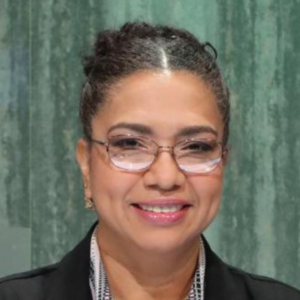
Evelyn Itzel Quiros McIntire, completed her primary and secondary studies in her hometown of Penonomé, province of Coclé. She obtained a degree in Agricultural Development Engineering with orientation in Agricultural Business Management from the Faculty of Agricultural Sciences of the University of Panama. He obtained a Magister Scientiae degree in Ecological Agriculture, with emphasis in Phytogenetic Resources and Biotechnology, at the Tropical Agricultural Research and Higher Education Center (CATIE), Turrialba, Panama. CATIE, Turrialba, Cartago, Costa Rica. And he completed doctoral studies at the Agrarian University of Havana in conjunction with the Curricular Program of the National Center for Agricultural Health CENSA, to obtain the degree of Doctor of Agricultural Sciences, in Mayabeque, Cuba.
She is currently a researcher at the Institute for Agricultural Innovation of Panama (IDIAP), with 26 years of research experience in the cultivation of rice. Dr. Quiros leads the most important projects of IDIAP such as agronomic management and genetic improvement of this rice crop.
As a result of his research achievements, which he has carried out with other IDIAP researchers, consisting mainly in evaluating and identifying outstanding genotypes adapted to the agro-ecological rice growing areas of the country, he has managed to release new rice varieties that meet the crop’s standards. They have succeeded in releasing new rice varieties that comply with the crop’s regulations. Since 2011, their work has allowed the release of five new commercial varieties such as IDIAP-FL-72-17, IDIAP FL-069-18, IDIAP FL-148-18 and IDIAP-FL137-11 and recently IDIAP FL Alanjeña-22.
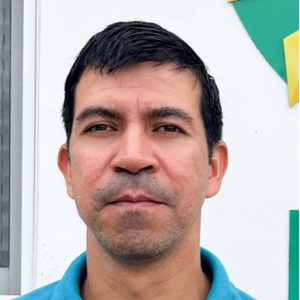
“Yamid Sanabria has been a FLAR plant breeder for temperate Latin America, based in Uruguay, since 2015. He works together with institutions in Argentina, Brazil, Chile, Paraguay and Uruguay in the development of rice germplasm more adapted to the region and with higher yields. During his PhD at Louisiana State University, he developed lines with resistance to Rhizoctonia solani. Previously, Yamid was associated with CIAT where he was also working with the rice breeding program”.
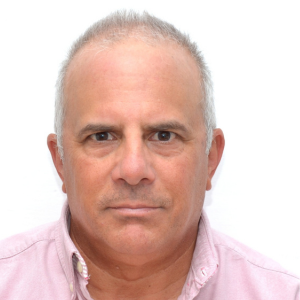
Agricultural Engineer graduated in 1990 from the Agronomy Faculty of the University of the Republic in Uruguay.
Researcher of INIA’s Rice Program since 1990.
Master of Science, Texas A&M University 1996
D. in Ecology from the University of California at Davis in 2003.
He held positions as Regional Director, Program Director and was a member and president of INIA’s Board of Directors 2012-2018.
He lives in Treinta y Tres, is an agricultural producer, married to Maria Laura and father of two children Matías and Valentina.
His area of work has always been linked to rice, irrigation management and its interaction with the environment.
He is currently Co-Chair of the Rice group of the Global Greenhouse Gas Research Alliance (GRA).

